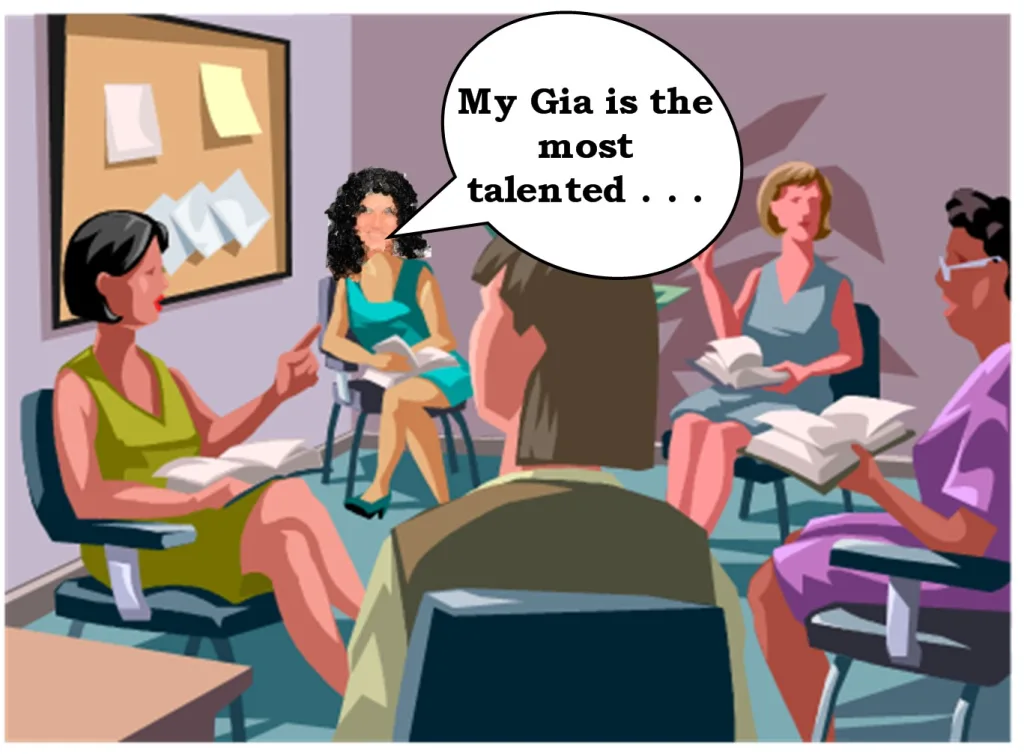Bragging is a way of expressing confidence in oneself and one’s accomplishments. It can be seen as a positive thing, but it can also have a negative impact on relationships. When taken to the extreme, bragging can be detrimental to relationships and cause tension between people.
When someone brags about their achievements, personal qualities, experiences, or possessions, it can make those around them feel insecure and insignificant. Bragging is often done out of insecurity—people want to be accepted and valued, so they exaggerate their successes in order to get the admiration they crave. This type of boasting leaves others feeling belittled and unimportant.
It’s important to remember that there is a fine line between healthy self-promotion and bragging. Healthy self-promotion involves being proud of your accomplishments without sounding arrogant or boastful. On the other hand, bragging involves exaggerating your talents or talking down about others in order to make yourself look better than them.
If you find yourself bragging too much, try focusing on praising others instead of promoting yourself. This will help you become more aware of how your words affect those around you and will make it easier for you to engage with others without coming across as boastful or arrogant. Additionally, remind yourself that no one is perfect—everyone has weaknesses that sould be acknowledged and accepted.
At the end of the day, bragging isn’t necessarily bad; it just needs to be done in moderation and with respect for those around you. Being humble is an important social skill that will help you foster meaningful relationships with others without making them feel small or insignificant in comparison to you.
The Negative Effects of Bragging
Bragging can be a bad thing, depending on the context and how it’s done. It can make people feel like they’re being judged or put down in comparison to you. It could also create a sense of competition between people that may not even be interested in competing. In some cases, it can be seen as self-centered, arrogant, and disrespectful to others. Ultimately, bragging should only be done when it is appropriate and with the intention of making other people feel good about themselves and their accomplishments.

The Impact of Bragging on a Person’s Character
Bragging often says a lot about a person’s insecurities. People who brag are usually trying to compensate for feelings of inadequacy and insecurity by boasting about their achievements, wealth, possessions and relationships. This need to constantly reassert themselves can be a sign of low self-esteem and insecurity, as the person is trying to convince others, as well as themselves, that they are worthy and valuable. Bragging can also be a sign of arrogance and narcissism, with the person believing that they are superior to others and that their accomplishments should be admired.
The Negative Effects of Boasting
Boasting can be seen as negative when it is done in an excessive or inappropriate way. It can imply that a person is too prideful or that they are exaggerating their accomplishments. Boasting can also be seen as boastful behavior if it coes across as bragging, which can make the speaker appear insincere or self-absorbed. On the other hand, boasting can be seen as a positive form of self-expression if it is done in an appropriate manner. It can help people build confidence and show appreciation for their successes and achievements. Ultimately, the decision of whether boasting is negative or not depends on the context and the attitude in which it is presented.
The Arrogance of Bragging
Yes, bragging is generally seen as an arrogant behavior. It involves exaggerating one’s own talents and accomplishments, often at the expense of others, in order to make oneself look better than them. This kind of behavior is seen as rude and disrespectful, and can create negative feelings between people.
The Benefits of Bragging in Moderation
Yes, it is perfectly okay to brag sometimes. In fact, it can even be a healthy thing to do because it gives you the opportunity to share your successes and accomplishments with others. However, it is important to be aware that there is a difference betwen bragging and simply sharing information about yourself. Bragging tends to come across as boastful and arrogant, while sharing your successes in an informative manner can be seen as more acceptable and even inspiring. It is best to take pride in your achievements and share them with others but make sure you do it in a way that doesn’t come across as bragging.

Source: wellmindedcounseling.com
The Dangers of Humble Bragging
Yes, it is bad to humble brag. Humblebragging is a form of self-promotion that combines bragging and complaining, in an effort to make someone appear humble while still appearing boastful. While it may seem like an effective way to gain attention and appreciation, research has shown that it actually has the opposite effect. People perceive those who humblebrag as insincere and manipulative, instead of genuine and admirable. Furthermore, humblebragging is often less effective than simply complaining because people view complainers as being more sincere. Therefore, instead of humblebragging, it’s beter to openly express your accomplishments without trying to disguise them as complaints or pretend modesty.
The Characteristics of a Bragger
A bragger is a person who excessively talks up their achievements, possessions, or skills in order to gain attention or admiration. They often focus on their own accomplishments, rather than those of others, and can be very boastful. Braggers tend to be more focused on themselves than the people around them and may come off as arrogant or insensitive. They may also be seen as overly competitive or trying to one-up other people in conversations.
Dealing with Someone Who Brags
1. Acknowledge the bragger and let them know you appreciate thir enthusiasm, but then gently remind them that not everyone needs to know all the details. Ask questions to show genuine interest in their accomplishments and redirect the conversation if it starts to become too much.
2. Refocus the conversation onto something else so that everyone can have a chance to share their own accomplishments or stories.
3. If you feel like someone is bragging too much, try to subtly point out that there are other people in the room who have had their own successes and could use some recognition as well.
4. Be honest with yourself and recognize when you may be feeling jealous or competitive with someone else’s success, as this can fuel an unhealthy cycle of comparing yourself to others and diminishing your own accomplishments.
5. Finally, remember that it’s best to remain kind and understanding when dealing with a bragger, as they may not be aware they’re coming off this way or they may just need someone to listen.
The Effects of Bragging
Bragging can have several effects on relationships and the people involved. For one, it can create feelings of superiority in the person who is bragging, while simultaneously making those around them feel inferior or unimportant. This can lead to resentment and a breakdown in communication between those involved. Additionally, it can cause others to be less likely to trust the bragger since they might assume their statements are not accurate. Finally, bragging can create an atmosphere of competition where people are focused on outperforming each other rather than cooperating.

The Impact of Confidence on Boasting
No, confident people do not boast. Truly confident people have a healthy sense of their own self-worth, and don’t feel the need to call attention to themselves or their accomplishments. Instead of bragging, they are more likely to focus on recognizing the accomplishments of others or celebrating collective successes. They understand that it is not necessary to broadcast their achievements because they already know they are capable and valuable without having to be told.
The Relationship Between Bragging and Pride
Yes, bragging is a form of pride. It is an expression of one’s feeling of self-worth and accomplishment, and a way to show off what one has achieved. Bragging can be done for a variety of reasons, such as to draw attention to oneself, to boost one’s ego, or simply to share experiences with others. The problem with bragging is that it can often come across as arrogant and boastful, instead of being seen as an expression of pride in one’s accomplishments. In some cases, bragging may even be seen as an indication of insecurity or low self-esteem. To ensure that your pride is conveyed in a positive manner it is important to be mindful about how you present yoursef through your words and actions.
Insecurity of Boastful People
Boastful people may appear confident, but their behavior may actually be a mask for insecurity. Boasting is often used to convince others and oneself that one has more value or worth than they actually possess. It can also be a way to draw attention away from areas of insecurity, such as lack of knowledge or skills. This type of bragging usually coes from an underlying fear of being judged or rejected by others. Such behavior can be seen in the workplace, school, and even in social settings. In contrast, true confidence is derived from genuine self-worth and pride in one’s achievements and abilities without having to compare oneself to anyone else.
The Phenomenon of Humble Bragging
Humble bragging is an attempt to gain recognition and praise for an accomplishment without appearing boastful or arrogant. It’s a way of self-promotion that, at least on the surface, looks more modest and self-effacing than an outright boast. By couching it in terms of false modesty, people can show off their accomplishments without feeling embarrassed or uncomfortable about doing so. Additionally, humble bragging allows people to appear more likable and likeable than they would if they simply boasted about their accomplishments outright. This can be especally beneficial in professional contexts where people want to maintain positive relationships with their colleagues and superiors.
The Impact of Bragging on Personality
Bragging is not necessarily a personality trait, but it can be a symptom associated with narcissistic personality disorder. People with narcissistic personality disorder may often display grandiose behavior, such as bragging about personal achievements and skills, in order to establish a sense of personal importance. However, not all people who brag have narcissistic personality disorder. Other psychological issues or even social pressures can lead to bragging in some cases.
The Consequences of Bragging
No, it is not typically good to be a bragger. Bragging can be seen as disrespectful, obnoxious and even arrogant. It can also make people feel bad about themselves and undermine the accomplishments of others. It is better to recognize the efforts and successes of those around you rather than to boast about your own accomplishments in a self-aggrandizing way.
Conclusion
In conclusion, bragging can have a negative impact on your relationships as it can make others feel insignificant or be seen as too prideful. Boasting is not the same as simply sharing good news, as it often implies exaggeration and arrogance. People often brag in order to get the admiration they crave, but it is important to be aware of how your bragging may come across to other people. To ensure positive relationships, it is better to celebrate successes without taking away from others, and to strive for genuine confidence rather than seeking external validation through bragging.
